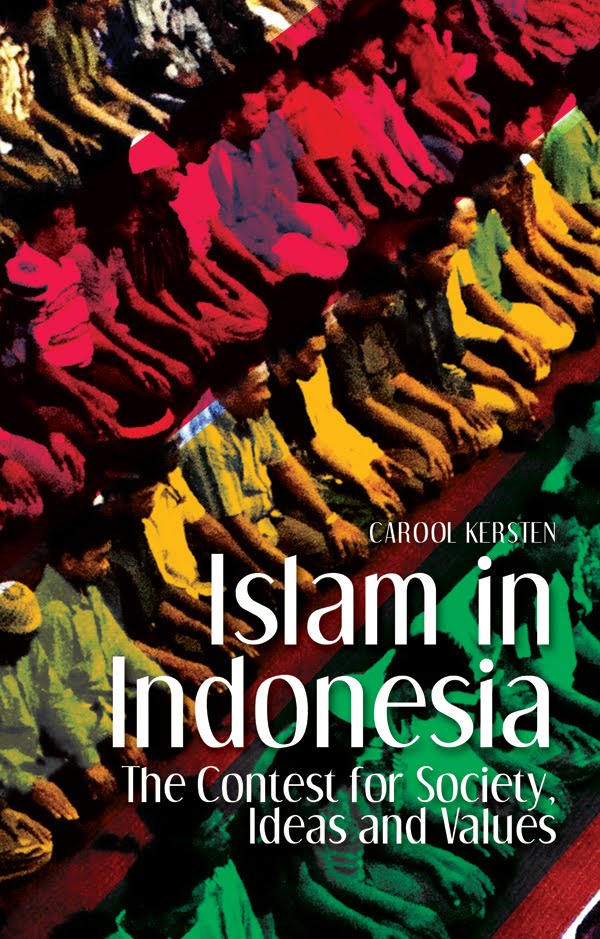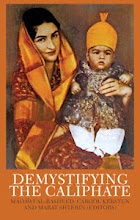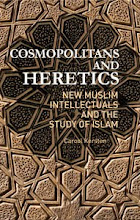 |
| Abdullahi Ahmad an-Na'im |
This is just one provocative statement by the Sudanese-born, but US-based, scholar
Abdullahi Ahmad an-Na'im (1946). Trained as a jurist, he is also a follower of the late
Mahmoud Muhammad Taha (1909-1985), whose controversial interpretation of the Qur'an led to his execution at the hands of one of Sudan's Islamist regimes. Combining his legal learning and induction in the Sufi-inspired thinking of Taha, Abdullahi n-Na'im is considered one of the most prominent voices from the Muslim world advocating adherence to universal human rights standards and an outspoken proponent of a careful distinction between things political and religious.
In a recent interview with Germany's
Qantara website, he elaborated on these points once again:
State and religion should be clearly separated. For me, as a Muslim, I need the state to be secular so that I can practice Islam through conviction and choice. The need of the state to be secular derives from an Islamic point of view; it has nothing to do with the European Enlightenment. The state has nothing to do with my being a believer or an atheist.[...]
The concept of an Islamic state is a post-colonial concept that combines a European idea of the nation state and the idea of Muslim self-determination in terms of Islamic identity. We cannot really claim that everything that is going on around the world is due to the Enlightenment or the European idea of secularism!
As to the role of Islamic law, generally referred to as 'Sharia', an-Na'im explains:
Sharia consists of the whole normative system of Islam founded in the Koran, the Sunna and the hadith, or tradition of the Prophet. So as such, it is not possible even in a secular state to deny Muslims the right to turn to Sharia to answer questions such as how to pray or how to fast.
Yet, at the same time:
Sharia cannot be enforced by the state anywhere. There is absolutely no possibility to enact Sharia as a law of the state whether it be in a so-called "Muslim majority country" or a tiny Muslim minority anywhere. The nature of Sharia defies codification. It is about the interpretation that people choose through their own conviction.
Being a jurist trained in 'secular' law and an academic teaching at Emory University in Atlanta, Georgia, it is tempting to consider an-Na'im's views as having been shaped by western legal thinking. However that is not the case. Much of it is grounded in the influence exercised by an-Na'im's spiritual-intellectual mentor, Mahmoud Muhammad Taha and his contrarian reading of the Qur'an. An-Na'im translated Taha's book on the subject into English, and it is was published under the title The Second Message of Islam. Here Taha argues that -- in contrast to conventional Muslim interpretations -- the Meccan chapters form the core of Islam's ethical outlook, while the Medinan chapters with their extensive legal excursions are in fact no more than a pedagogy to prepare the believers for becoming true Muslims.
True to Taha's work as an independence fighter and founder of the Republican Brotherhood movement, an-Na'im makes a case for 'indigenous self-liberation from colonisation', an effort that is not just political, but also epistemological:
...the hearts and minds of Muslims continue to be colonised by European epistemology and philosophy, by European ideas of administration of the state despite the fact that nominally, they have been independent for decades. Colonialism is not just simply a military occupation, it is a state of mind of both the coloniser and the colonised.
But that does not mean an-Na'im rejects all external intellectual influences 'from any other culture whether European or North American or otherwise'. However, in response to calls for an Islamic 'Reformation' or 'Muslim Luther', an-Na'im cautions against simplistic parallels and essentialist interpretations:
The actual history of the European Reformation was much more complex than just a German priest nailing some demands on the door of a church. Transformative movements take a long time and they are often a sort of intergenerational consensus that evolves over many generations in many different parts of the region.
For the whole interview click here














